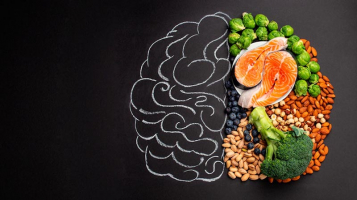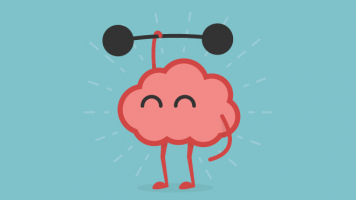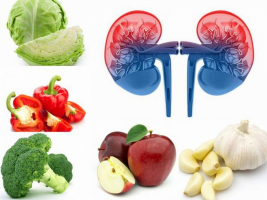Top 7 Worst Foods for Your Brain
The brain is the most vital organ in your body. It keeps your heart beating, lungs breathing, and all of your body's functions running. That is why it is ... read more...critical to maintain optimal brain function with a balanced diet. Some meals are bad for your brain, affecting your memory and mood and raising your risk of dementia. Fortunately, you may minimize your risk of the condition by eliminating specific items from your diet. The worst foods for your brain are revealed in this article.
-
Soda, sports drinks, energy drinks, and fruit juice are examples of sugary drinks. Sugary drinks not only increase your waistline and increase your risk of type 2 diabetes and heart disease, but they also have a bad effect on your brain. Excessive use of sugary drinks raises the chance of acquiring type 2 diabetes, which has been linked to an increased risk of Alzheimer's disease. Furthermore, even in persons who do not have diabetes, greater blood sugar levels can raise the risk of dementia. High-fructose corn syrup (HFCS), which contains 55% fructose and 45% glucose, is a key ingredient in many sugary drinks.
Obesity, high blood pressure, high blood lipids, diabetes, and vascular dysfunction can all be caused by high fructose consumption. These characteristics of metabolic syndrome may enhance the chance of acquiring dementia in the long run. Animal studies have indicated that a high fructose diet can cause insulin resistance in the brain, as well as a decrease in brain function, memory, learning, and neuron development. One rat study discovered that a high-sugar diet increased brain inflammation and decreased memory. Furthermore, rats fed a diet containing 11% HFCS performed worse than those fed a diet containing 11% normal sugar.
Another study discovered that rats on a high-fructose diet acquired more weight, had poorer blood sugar management, and were more likely to develop metabolic problems and cognitive deficits. While further research on humans is needed, the findings show that high fructose consumption from sugary drinks may have extra harmful effects on the brain in addition to the effects of sugar. Water, unsweetened iced tea, vegetable juice, and unsweetened dairy products are all good alternatives to sugary beverages.

Sugary Drinks 
Sugary Drinks -
Sugars and highly processed grains, such as white flour, are examples of refined carbs. These carbohydrates have a high glycemic index (GI). This implies that your body digests them fast, resulting in an increase in blood sugar and insulin levels. Furthermore, when consumed in higher quantities, these meals frequently have a high glycemic load (GL). The GL indicates how much a food elevates blood sugar levels based on the serving size. High-GI and high-GL foods have been shown to decrease brain function. A single meal with a high glycemic load has been demonstrated in studies to impair memory in both children and adults.
Another research on healthy university students discovered that individuals who consumed more fat and refined sugar had lower memory. This effect on memory might be caused by inflammation of the hippocampus, a portion of the brain that regulates memory as well as reactivity to hunger and fullness cues. Inflammation has been identified as a risk factor for neurodegenerative illnesses such as Alzheimer's and dementia. One research, for example, looked at older persons who ingested more than 58% of their daily calories as carbs. According to the study, they had nearly double the chance of moderate mental impairment and dementia.

Refined Carbs 
Refined Carbs -
Trans fats are a form of unsaturated fat that can be harmful to brain function. While trans fats are naturally present in animal products such as meat and dairy, they are not a big health risk. The culprit is industrially manufactured trans fats, commonly known as hydrogenated vegetable oils. Shortening, margarine, icing, snack foods, ready-made cakes, and prepackaged cookies all include artificial trans fats. According to studies, persons who consume more trans fats have a higher chance of Alzheimer's disease, worse memory, decreased brain capacity, and cognitive decline.
However, several studies have shown no link between trans-fat consumption and brain health. Trans fats, however, should be avoided. They are harmful to a variety of other elements of health, including heart health and inflammation. The research on saturated fat is conflicting. Three observational studies indicated a link between saturated fat consumption and an increased risk of Alzheimer's disease, whereas fourth research found the reverse impact. One reason for this might be that a minority of the test populations were genetically predisposed to the condition, which is caused by the ApoE4 gene. However, additional research is needed on this subject.

Foods High in Trans Fats 
Foods High in Trans Fats -
Sugar added fats, and salt is common ingredients in highly processed meals. Chips, chocolates, fast noodles, microwave popcorn, store-bought sauces, and ready-made meals are among them. These meals are typically high in calories but lacking in nutrition. They are precisely the types of meals that contribute to weight increase, which can have a bad impact on your brain health. A study of 243 participants discovered that excess fat surrounding the organs, known as visceral fat, is linked to brain tissue damage. Another research of 130 participants discovered that even in the early stages of metabolic syndrome, there is a detectable loss in brain tissue.
The nutritional profile of processed foods in the Western diet can also have a harmful impact on the brain and contribute to the development of degenerative disorders. 52-person research discovered that a diet heavy in unhealthy foods led to decreased levels of sugar metabolism in the brain as well as a loss in brain tissue. These are regarded to be risk factors for Alzheimer's disease. Another study with 18,080 participants discovered that a diet strong in fried meals and processed meats is connected with worse learning and memory scores. Another large-scale investigation with 5,038 participants had similar results. Over a 10-year period, a diet strong in red meat, processed meat, baked beans, and fried meals was linked to inflammation and a quicker loss of thinking. Rats fed a high-fat, high-sugar diet for eight months exhibited reduced learning ability and unfavorable alterations in brain plasticity in animal tests. Another study discovered that rats on a high-calorie diet had blood-brain barrier abnormalities.

Highly Processed Foods 
Highly Processed Foods -
Aspartame is an artificial sweetener that is included in a variety of sugar-free goods. People frequently take it to reduce weight or avoid sweets when they have diabetes. It is also included in numerous commercial items that are not expressly marketed to diabetics. However, this commonly used sweetener has been related to behavioral and cognitive issues, while the data is debatable. Aspartame is a chemical compound composed of phenylalanine, methanol, and aspartic acid. Phenylalanine can pass the blood-brain barrier and impair neurotransmitter synthesis. Furthermore, aspartame is a chemical stressor that may make the brain more vulnerable to oxidative stress. Some experts believe these elements may contribute to the deleterious effects on learning and emotions found when aspartame is ingested in excess.
A high-aspartame diet was studied in one research. For eight days, participants were given 11 mg of aspartame for every pound of body weight (25 mg per kg). They were more irritable, had a greater rate of sadness, and scored poorer on mental tests by the conclusion of the trial. Another study discovered that persons who drank artificially sweetened soft drinks had a higher risk of stroke and dementia, albeit the specific type of sweetener was not mentioned. Research in mice indicated that frequent aspartame consumption affected memory and elevated oxidative stress in the brain. Another study discovered that long-term use caused an imbalance in antioxidant status in the brain.

Aspartame 
Aspartame -
Alcohol, when used in moderation, maybe a pleasurable accompaniment to a wonderful dinner. Excessive intake, on the other hand, can have devastating consequences for the brain. Chronic alcohol consumption reduces brain capacity, causes metabolic changes, and disrupts neurotransmitters, which are substances that the brain uses to communicate. Alcoholics frequently have a vitamin B1 deficiency. This can result in a brain condition known as Wernicke's encephalopathy, which can progress to Korsakoff's syndrome. This condition is defined by significant brain injury, including memory loss, vision abnormalities, disorientation, and unsteadiness. Excessive alcohol use can also have detrimental consequences on non-alcoholics.
These acute events might lead the brain to perceive emotional signals in an abnormal manner. People, for example, have a lower sensitivity to sad expressions and a higher sensitivity to furious ones. These abnormalities in emotion identification are suggested to be a source of alcohol-related aggressiveness. Furthermore, alcohol drinking during pregnancy might be harmful to the baby. Because the embryonic brain is still growing, the toxic effects of alcohol can cause developmental abnormalities such as fetal alcohol syndrome. Because the brain is still growing in teens, the effects of alcohol consumption can be very harmful. Overall, you should limit your alcohol usage, especially if you're a teen or young adult, and avoid binge drinking completely.

Alcohol 
Alcohol -
Mercury is a heavy metal pollutant and neurological toxin that may be kept in animal tissues for a long period. Long-lived, predatory fish are especially vulnerable to mercury accumulation and can carry quantities up to one million times the concentration of their surrounding water. As a result, seafood, particularly wild types, is the principal source of mercury in humans. When someone consumes mercury, it travels throughout their body, concentrating in the brain, liver, and kidneys. It accumulates in the placenta and fetus of pregnant women. Mercury poisoning causes disturbance of the central nervous system and neurotransmitters, as well as activation of neurotoxins, resulting in brain damage.
Mercury can affect brain development and induce cell component damage in developing fetuses and early children. Cerebral palsy and other developmental delays and disabilities can result from this. Most fish, however, is not a substantial source of mercury. Indeed, fish is a high-quality protein that provides a variety of minerals, including omega-3s, vitamin B12, zinc, iron, and magnesium. As a result, it is essential to consume fish as part of a balanced diet. Adults should consume two to three servings of fish each week, on average. If you're eating shark or swordfish, limit yourself to one meal and no other fish for the rest of the week.

Fish High in Mercury 
Fish High in Mercury




























